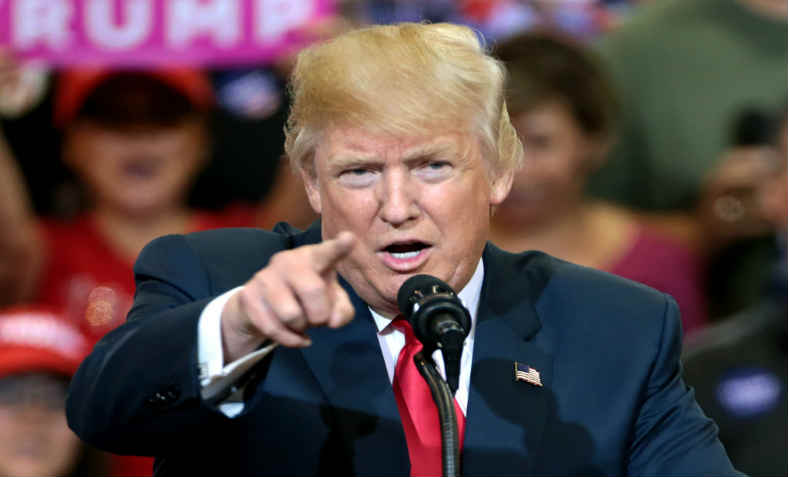 Donald Trump speaking with supporters at a campaign rally at the Phoenix Convention Center in Phoenix, Arizona. Photo: Gage Skidmore
Donald Trump speaking with supporters at a campaign rally at the Phoenix Convention Center in Phoenix, Arizona. Photo: Gage Skidmore
The United States cannot be allowed to pick and choose countries’ governments, argues Vladimir Unkovski-Korica.
The United States has a long history of sponsoring coups, especially in Latin America, which Washington sees as its back-yard.
But under Donald Trump, the US is plumbing new depths. Having eased Jair Bolsonaro’s ascent to power behind the scenes, the US has now recognised a unilateral declaration by right wing opposition leader Juan Guaido in Venezuela that he is now the president of the country. So have US allies like Canada, Brazil and Argentina.
This is no democratic move. It is a coup. Guaido’s Popular Will party has received massive funding from the US State Department and National Endowment for Democracy.
Engineering regime change has been on the cards in Venezuela even since the botched 2002 coup against Maduro’s predecessor Hugo Chavez.
Chavez, who died in 2013, was hated in the US because he represented the most radical edge of Latin America’s ‘pink tide’, a redistributive approach to using state power in favour of the poor (albeit without really challenging the private sector).
Maduro was less successful than Chavez. And there have been several recent coup attempts with rogue elements of the army repeatedly trying to foster support for an anti-government move. There was an assassination attempt in December 2018, and the latest attempt occurred just days ago.
This comes on the back of last year’s May 2018 election, which current president Nicolas Maduro won. There was controversy over that election, as the main opposition boycotted the vote, knowing it was going to lose.
The election was certainly not a resounding mandate for Maduro. He won two thirds of the vote, but on a 46 percent turnout. That still puts him on roughly 28 percent of voters, comparing to Trump’s 26 percent, to put things in context – maybe the US democratic deficit comes from its vast export of the product?
The Venezuelan economy has faced tough US sanctions – but the government has shown a general lack of ability to deal with the country’s over-reliance on oil exports, the price of which has fallen over the last decade. Its measures have not made a clean break with private capital or tried to mobilise the population against capitalism.
This has allowed the right to mobilise and, with the Bolsonaro breakthrough in Brazil, the pressure for regime change from abroad and from domestic business elites will be huge. The right will not forgive the ‘pink tide’ in Latin America for suggesting that even modest wealth distribution was on the cards.
Neither will Trump. He is out to quash any semblance of independent politics abroad that even remotely resembles an anti-neoliberal agenda. We must mobilise to stop the US from effecting regime change abroad at will. If we do not, any genuine attempt to move beyond neoliberalism will face the same murderous fate.

